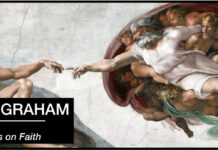
Gain wisdom because it is vitally important. “[T]hrough wisdom your days will be many, and years will be added to your life.” (Proverbs 6:9). It is “literally, a matter of life and death” (Durant, p. x). But what is wisdom? Merriam Webster describes wisdom as the “ability to discern inner qualities and relationships” (source). Dictionary (dot) com provides a more complete definition, calling wisdom “the quality or state of being wise; knowledge of what is true or rightcoupled with just judgment as to action; sagacity, discernment, or insight” (source).
Gain Wisdom in History
Philosophy is a transliteration carried over from Greek, meaning, “lover of wisdom.” But we use it today to speak of a body of wisdom. Usually we use philosophy to speak of the ideas of a lover of wisdom. So when Will Durant writes The Story of Philosophy: The lives and opinions of the world’s greatest philosophers from Plato to John Dewey (Amazon; .ca; .co.uk), he is writing on, “literally, a matter of life and death” (p x).
While Durant’s popular history chronicles the ideas of great lovers of wisdom, it does far more than merely relate basic information. It conveys a history of wisdom. There are branches in the philosophical tradition. I note that Durant pursues a different philosophy of life, and consequently a different branch than I do. Nevertheless, in crafting a history of wisdom, this story had a profound impact on me.
Gain Wisdom in a Transforming Text
This post is part of a series of my reflections on transforming texts–the books that have changed my life the most. These books have become conversation parters with me. I credit them with shaping my thinking, my desires, and my life. I think they will change your life too. When I think of the story developed by Durant as a transforming text, I subject it to the language of Erasmus: “You must acquire the best knowledge first, and without delay; it is the height of madness to learn what you will later have to unlearn.” (Letter to Christian Northoff (1497), as translated in Collected Works of Erasmus (1974))
Gain Wisdom in University
The book of Proverbs reminds us: “The beginning of wisdom is this: Get wisdom. Though it cost all you have, get understanding.” (Proverbs 4:7).
Could my faith provide a satisfactory synthesis in logic, esthetics, ethics, politics, and metaphysics? I was exploring the bigger questions in life, when I stumbled across this book on a discount shelf.
Durant’s story was vibrant, lively, and interesting. It showed me a survey, a spectrum of answers to my questions from some of the greatest thinkers “in the living form of geniuses” (p. xxviii). Though he draws largely from outside of the Christian tradition, his work overlaps with it in many places. All humans are asking the same basic questions. The most enduring lesson I took from The Story of Philosophy was the way Durant traced big ideas from thinker to thinker and showed what another author would call “The Consequences of Ideas.” For those interested in pursuing these studies from a distinctively Christian perspective, I recommend RC Sproul’s excellent survey (Amazon; .ca; .co.uk).
Gain Wisdom in Life
Durant describes the 5th century BC as an age of “destroyed faith” and “disintegrated individualism” (p. 7). RC Sproul explains, in The Consequence of Ideas: Understanding the Concepts that Shaped Our World (Amazon; .ca; .co.uk), how this Greek culture ended up with “a crass politicization of education, economics, law, and public works led to a decline in both substantive thinking and civic virtue, both of which are enemies to any democratic enterprise that thrives on compromise and the relativization of ethics” (p. 27).
In another post I discuss where I see this paralleled in today’s world. We desperately need wisdom. The rich history of the branches of Philosophy give us the language, the tools, and the concepts from which to make a start on gaining wisdom for ourselves. We hardly need to reinvent the wheel. Wheels of wisdom roll right up to us, and invite us to get on the bus, and take a little trip with them.





